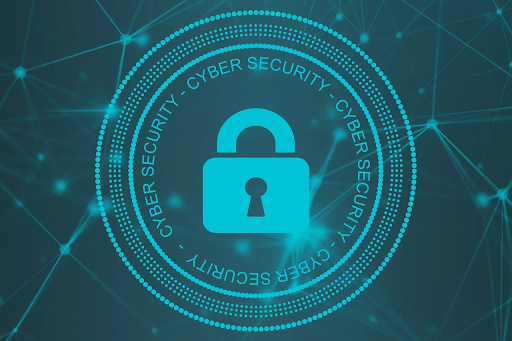To sign up for our daily email newsletter, CLICK HERE
If your organization conducts business at the federal level, you’re well familiar with the ever-changing privacy, safety, and security requirements and regulations. These rules come and go, and every now and then, you have to make new adjustments to your existing policies to ensure compliance with the latest procedures and processes.
Thankfully, implementing new regulations and compliance controls doesn’t have to be a tedious process. Though challenging, you can make sure it goes as painless as possible. How? By becoming familiar with the Cybersecurity Maturity Model Certification (CMMC),
This short guide will help you get ahead of everything you should know about it.
What is CMMC?

Powered by the National Institute of Standards and Technology (NIST) Special Publication (SP) 800-171, the CMMC program provides a cyber defense framework to centralize all DIB companies and bring them under one unified and certified industry standard.
In addition, the CMMC program regulates who can obtain a CMMC certification by verifying the companies’ eligibility. According to the program, any DOD government contractor must gain a CMMC certification. To do that, they must meet the strict requirements.
Additionally, the CMMC program is an innovative solution designed to address the inconsistent compliance shortcomings of defense contractors. Today, cyber defense organizations can harness the power of industry-leading CMMC certification services to ensure full compliance with the latest requirements and procedures.
Importance of CMMC Compliance

Implementing the CMMC framework helps your business organization protect government data from third-party exposure, unauthorized access, and other well-known DoD-related cyber threats. It allows you to verify that you have implemented the adequate, up-to-date cyber defense mechanisms required to shield Controlled Unclassified Information (CUI) and Federal Contract Information (FCI).
Thanks to that, a company handling sensitive CUI and FCI data can ensure full-time protection within the defense supply chain. Let’s briefly overview FCI and CUI so you know why they matter and how to safeguard sensitive government data from cyber threats:
FCI
Refers to any information generated or conveyed under US government contracts. FCI contains data that isn’t intended for public release. Because of that, increased and advanced cybersecurity protection is required.
CUI
It refers to strictly controlled and unclassified data sets outside government-regulated classified status. Though CUI doesn’t bear classified status, it still requires profound cybersecurity protection as it contains sensitive information on government ordinances and policies.
These include sensitive areas such as national defense, critical infrastructure, financial records, military insights, government plans, etc.
In the age of digital technologies, government agencies are seeing a significant increase in cyberattacks targeting sensitive data. That makes CMMC compliance more vital for preventing state-sponsored hack attacks and other threats that could jeopardize national security.
Benefits of Obtaining a CMMC Certification

Cyber defense companies should comply with CMMC regulations for various reasons. For one, a CMMC certification is mandatory for both defense contractors and mission partners.
This certification also gives your organization significant competitive advantages:
- Minimal exposure to cybersecurity threats
- Risk assessment and mitigation
- Reinforced cyber resilience
- Top levels of security assurance to clients and customers
- Access to high-end DoD contract bids and professional bidding assistance.
You can leverage these benefits to get ahead of your competitors while ensuring maximum data security and protection through updated CMMC compliance policies, processes, and procedures.
How to Make Your Company CMMC-Certified
By its design, the CMMC assessment process is strict, involving rigorous checks and verifications to ascertain your company’s eligibility level. Though the process can be tedious and daunting, you can streamline it using our compliance guidelines.
Here’s a checklist of all the steps you should take to ensure your business organization becomes CMMC-certified.
1. Assess Your Current CMMC Level
Evaluate your current practices for managing CUI and FCI data to determine your cybersecurity maturity level. Start by assessing your processes, networks, and systems to ascertain the contact points between your company and the sensitive data. The goal is to determine how and where your organization comes in contact with such information.
2. Conduct Self-Assessment
Find security vulnerabilities across your organization’s verticals through a thorough CMMC gap analysis and cross-reference your shortcomings with the best compliance practices. That should help you identify areas of improvement so you can start adjusting.
3. Develop a System Security Plan
CMMC certification requires companies to build a system security plan (SSP). The plan helps your organization identify all security control capabilities so you can create a detailed map of your corporate cybersecurity landscape.
An SSP helps you determine your company’s limitations, environment boundaries, connection points with other systems, and the level of your compliance efficiency with specific security requirements.
4. Deploy CMMC-Centric Cybersecurity Solutions
Once you determine your cybersecurity vulnerabilities, mitigate your gaps by investing and deploying future-ready solutions to bring your organization closer to meeting the CMMC compliance requirements.
5. Hire a Trusted Third-Party Auditor
Your company must pass the CMMC audit before it receives the certification. Hire an industry-leading auditor to help you complete the process. You have three hiring options on your hands:
- Third-Party Assessment Organization
- Registered Provider Organization
- Registered Auditing Practitioner
Once you complete all these steps and receive your certification, implement continuous monitoring to mitigate all risks and bridge all gaps that may disrupt your operations.
Conclusion
If your business operates as a DoD contractor, ensuring CMMC compliance is mandatory. It helps you ensure you have the latest industry-standard cyber defense mechanisms required for safeguarding government-related data.
CMMC certification services help you strengthen cybersecurity by reinforcing defenses using the latest practices and regulations. Getting a CMMC certification ranks your business higher on the market, giving you a competitive advantage and ensuring full protection against the latest cyber threats.